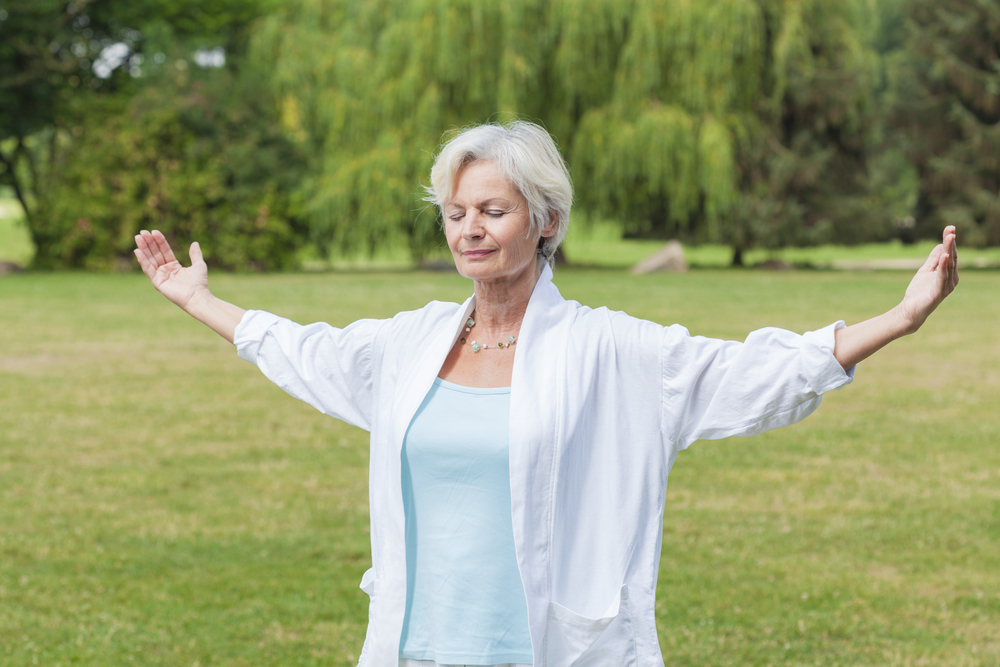Group Therapeutic Singing via Telemedicine Improved Respiratory Function of Parkinson’s Patients in Rural Iowa, Study Finds

Parkinson’s disease patients living in rural areas in Iowa show improved respiratory function with group therapeutic singing delivered via telemedicine, according to a pilot study.
The study, “The Feasibility of Group Therapeutic Singing Telehealth for Persons with Parkinson’s Disease in Rural Iowa,” was published in the journal Telemedicine and e-Health.
Voice impairment affects most patients with Parkinson’s, but only a small minority undergo speech therapy. That is why new approaches to help improve voice and respiratory impairments in Parkinson’s patients are needed, especially for those living in rural areas where access to care is limited.
Telemedicine may be an effective answer, as it has led to positive results in the treatment of depression in Parkinson’s patients, as well as in group therapy, and education and support sessions.
Previous studies have suggested that singing may ease voice and respiratory impairments in people with Parkinson’s. In particular, researchers at Iowa State University have shown that group therapeutic singing effectively maintains the voice and significantly improves respiratory control in these patients. However, whether it can be delivered through telemedicine — and whether it would lead to similar results as in-person group therapeutic singing — remains to be determined.
Aiming to address this topic, researchers tested an eight-week prerecorded group therapeutic singing program in nine idiopathic (of unknown cause) Parkinson’s patients (eight men, age 67-82) living in the rural Iowa towns of Rockwell City and Storm Lake.
All participants were on a stable regimen of antiparkinsonian medications for 30 days, did not smoke, and had received no speech therapy within the past two years. None had significant cognitive impairment, major psychiatric disorders, history of head or neck cancer, asthma, chronic obstructive pulmonary disease, or untreated hypertension.
The group therapeutic singing program was filmed before recruitment, with Parkinson’s patients who attended weekly in-person sessions. Each session included vocal exercises followed by group singing of familiar songs. The intervention targeted breath support, vocal intensity, and frequency range.
The assessments were made one week prior and one week after the intervention at the same time of day to avoid fluctuations in medication. Voice outcome measures included phonation (vocalization) duration and range, and vocal intensity, each tested in three trials.
Specifically, phonation duration was assessed as the total time a participant sustained the vowel sounds ‘‘ah’’ and ‘‘ee.’’ To determine phonation range, the team recorded the lowest and highest pitch with an iPad app, then calculated the difference. The loudest sound produced on a sustained ‘‘ah’’ indicated vocal intensity.
Respiratory outcome measures included maximal inspiratory and expiratory pressures (breathing in or out as forcefully as possible for two seconds) recorded with a portable respiratory pressure meter.
One participant dropped out at week three. Five attended all eight sessions, two completed seven sessions, and one participant attended six sessions. The overall compliance was 93.75%.
Analysis of the eight patients completing all sessions revealed that the changes in phonation range and vocal intensity were not statistically significant. However, both respiratory outcome measures improved significantly.
The results were in line with those of in-person sessions, suggesting similar effectiveness with the two approaches, the team noted. The different results seen in phonation duration — an increase with in-person, but a slight decrease with the pre-recorded program — may have been due to the small number of participants in the study using telemedicine, the team noted.
“This study has established that using a prerecorded GTS [group therapeutic singing] program is feasible and effective for persons with [Parkinson’s] in rural areas,” researchers wrote. “Thus, this pilot work suggests that the use of prerecorded GTS may be a viable treatment option for those with limited access to care,” they added.





